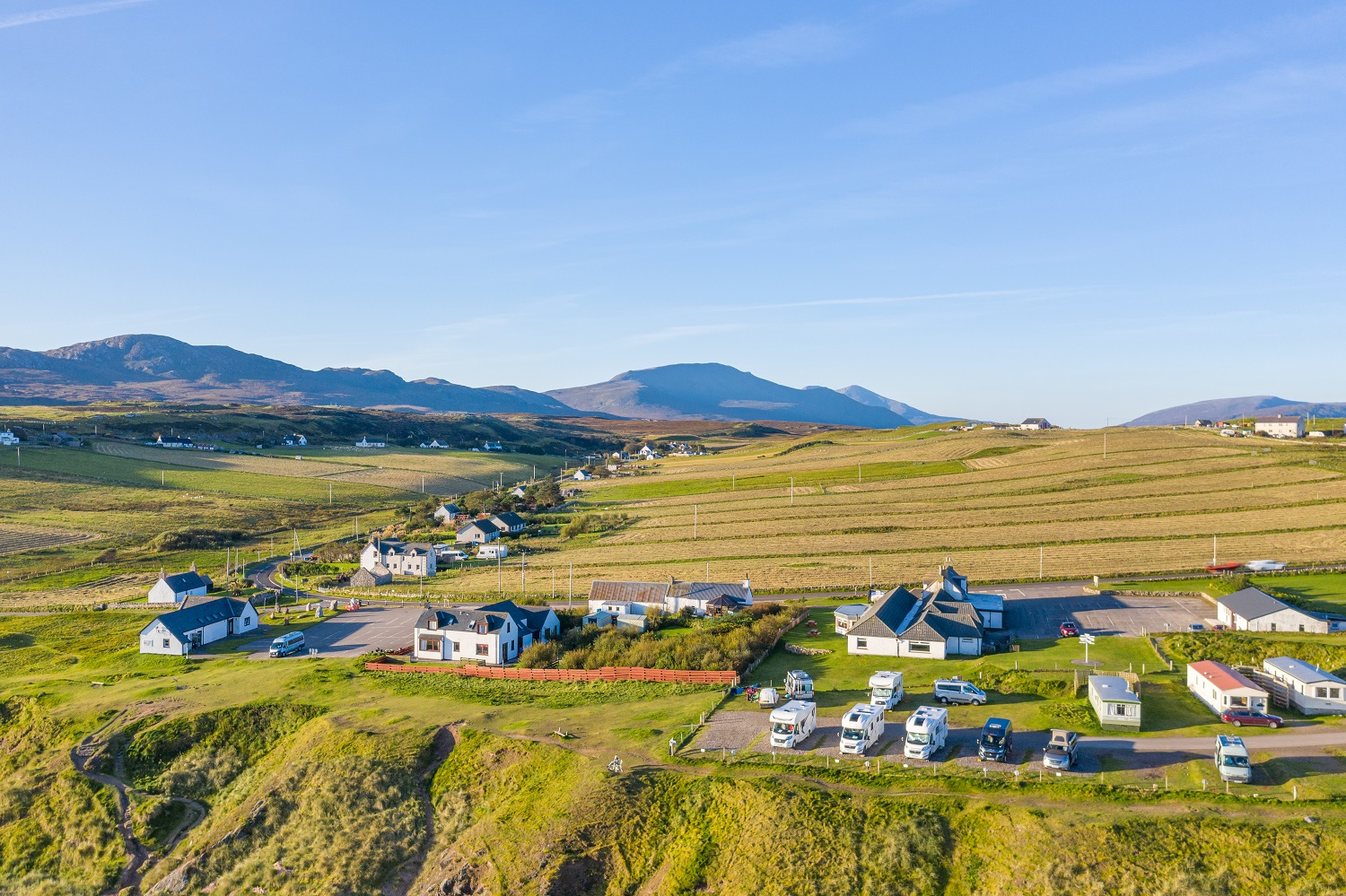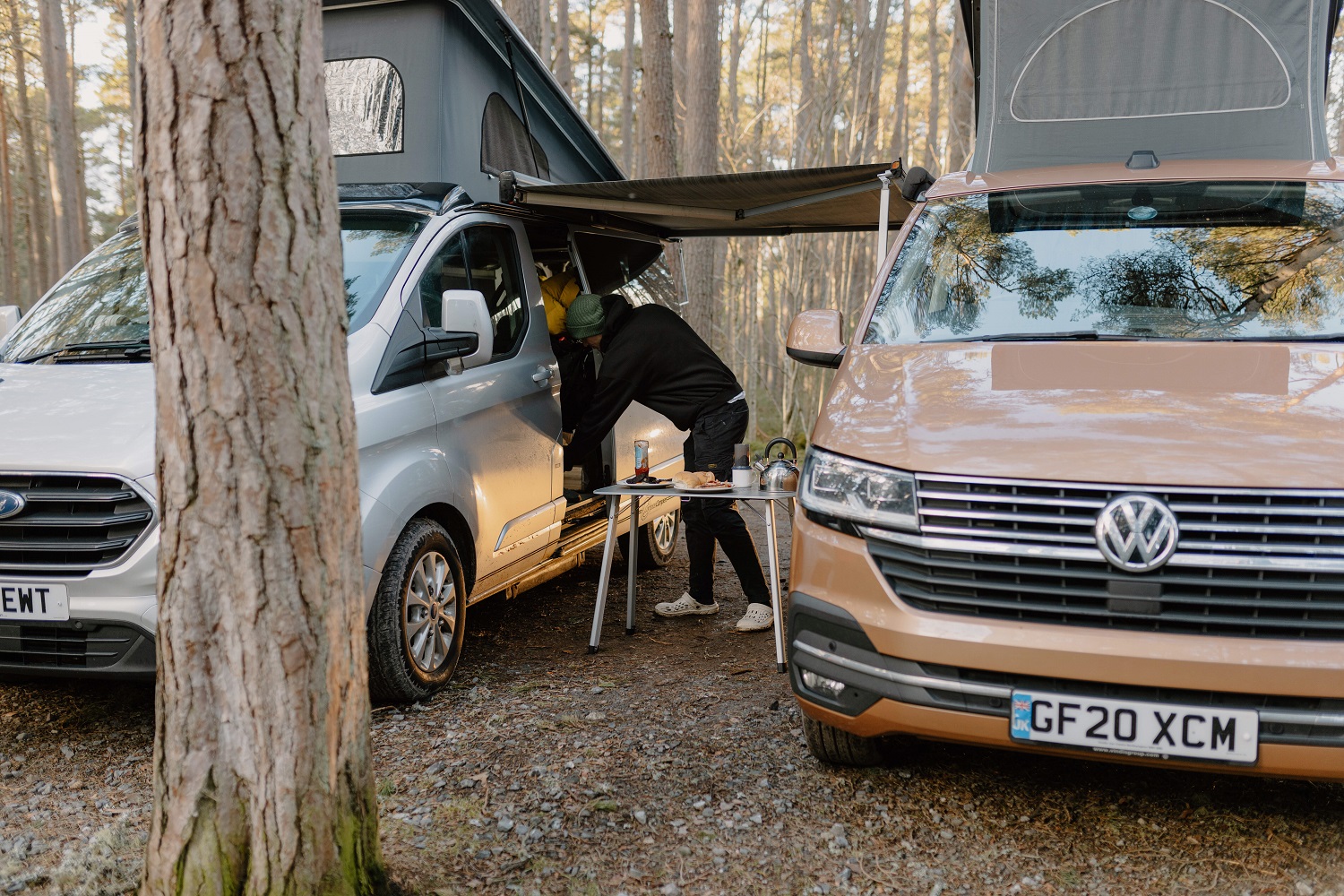As one of the main attractions for nature-loving, road-tripping explorers’ bucket lists, the North Coast 500 is hands down one of the best trips you can do to experience nature up close. The route takes you through the Scottish Highlands and the quaint towns nestled in amongst the rolling hills and lochs.
To maintain the NC500’s natural beauty, steps have been implemented to ensure the route stays clean and litter-free. The leave no trace rule instructs enthusiastic travellers to clean up after themselves to maintain the natural integrity and beauty of this popular route so that many more can enjoy this magnificent holiday destination for many years to come.
Understanding Leave No Trace
Leave No Trace comprises seven fundamental principles that help ensure people have as minimal an impact on nature and its natural surroundings as possible. These are particularly relevant for areas like the North Coast 500 (NC500) in Scotland, which attracts many visitors seeking to enjoy its natural beauty.
- Plan and Prepare: Understand the regulations and specific concerns of the area. Prepare for extreme weather and emergencies—schedule visits during off-peak times to reduce crowding. Travel in small groups and minimise waste by repackaging food
- Travel and Camp on Durable Surfaces: Use established trails and campsites to minimise damage to vegetation. Camp at least 200 feet away from lakes and streams to protect riparian areas. In popular areas, stick to existing trails and campsites.
- Dispose of Waste Properly: Pack out all trash, leftover food, and litter. Use catholes for human waste, digging them 6 to 8 inches deep and at least 200 feet from water sources. Carry water away from streams for washing, using minimal biodegradable soap.
- Leave What You Find: Preserve natural and cultural artefacts by not removing them. Avoid altering the environment, such as building structures or moving natural objects.
- Minimise Campfire Impacts: Cook with a lightweight stove instead of a campfire. If fires are permitted, use established fire rings and keep fires as small as possible.
- Respect Wildlife: Observe wildlife from a distance and never try to feed them. Store food securely to avoid attracting animals.
- Be Considerate of Other Visitors: Respect other visitors' experiences by being courteous and yielding on trails. Keep noise levels down to allow others to enjoy the natural sounds of the environment.
Practical tips for motorhome and campervan users
For those travelling the NC500 in a motorhome or a caravan, always ensure you manage your waste properly to ensure you don’t leave any
Wild camping on the NC500
Thanks to the Land Reform (Scotland) Act 2003, wild camping is legal in most of Scotland, including along the North Coast 500 route. However, some necessary regulations and best practices must be considered.
- Legal Aspects and Local Regulations: Wild camping is only legal for pitching a tent, not for parking vehicles overnight. It’s usually best to stay in managed campsites or caravan parks if you're travelling by vehicle, especially if you’re unsure whether or not wild camping is allowed.
You should always avoid wild camping near houses, paid campsites, hotels, B&Bs, etc., as it's not deemed acceptable according to travel etiquette. Some areas like Loch Lomond and The Trossachs National Park have bylaws restricting wild camping, so ensure you know where you can and cannot wild camp.
- Choosing a Camping Spot Responsibly: Follow the Scottish Outdoor Access Code and "Leave No Trace" principles during your trip. Take all your rubbish with you and leave the area as you found it. Avoid overcrowding by moving to a new spot if an area is already busy. Stick to smaller groups. Pitch your tent away from roads, buildings, and historic structures.
For your own safety, it’s best to choose flat, stable ground if you’re camping in the mountains. On beaches, ensure your tent and belongings are above the tideline. Avoid camping on sand dunes as they are sensitive habitats. If unsure, ask the landowner for permission whenever possible.
- Fire Safety and Respecting Local Communities: Use a camping stove rather than an open fire whenever possible and never light a fire during dry periods or in sensitive areas like forests or peaty ground. Limit noise and take all your grey water waste with you to avoid pollution.
Remember to be respectful, as wild camping is a privilege, and misconduct may result in the disallowance of it for every traveller.
Summary
If you want to know more about the principles of Leave No Trace and how to implement them during your NC500 trip, talk to the friendly team at Compass Campers. We’re always here to help you make the most out of your NC500 trip.

